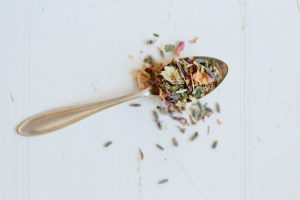The Naturopathic Co.

You're using an outdated browser. Please upgrade your browser to improve your experience.
Oxalates are highly correlated with many chronic illnesses. Oxalate (and its acid form, oxalic acid), is an organic acid that is primarily derived from three sources: the diet, fungus (such as Aspergillus and Penicillium), possibly Candida, and also human metabolism.
The deposition of oxalates in critical tissues such as brain and blood vessels causes oxidative damage in the body. Oxalates combine with calcium and iron to make crystals. In most people, these crystals leave the body in urine. However, when too much oxalate continues through to the kidneys, it can lead to kidney stones.
Muscle aches, joint pain
Fatigue
Rashes
Kidney Stones
Kidney infections
Gastrointestinal symptoms
Histamine symptoms
Kidney stones
Recurring UTIs
Gastrointestinal issues or inflammatory bowel disease
Autism
Autoimmune disease
Inflammation issues
Oxalates are toxic to all humans, but we all have varying abilities to clear them, and varying tolerance to the amount consumed.
High oxalates in the urine were first found in people who were susceptible to kidney stones. Many kidney stones are composed of calcium oxalate. When calcium is low in the diet, oxalic acid is readily absorbed from the intestine into the bloodstream. If oxalic acid is very high in the blood being filtered by the kidney, it may combine with calcium to form crystals that may block urine flow and cause pain.
Oxalate crystals may also deposit in the bones, joints, blood vessels, lungs, thyroid.
Oxalate crystals cause oxidative damage, induce histamine release, and interfere with sulfate metabolism.
Studies show that oxalates in the urine are much higher in individuals with Autism Spectrum Disorders than in nonautistic children. A low-oxalate diet is being used extensively to treat children with Autism. Researcher, Susan Owens discovered that the use of a diet low in oxalates markedly reduced symptoms in children with Autism.
In the genetic disease hyperoxaluria type I and in vitamin B-6 deficiency, there is a deficiency in the enzyme activity that clears oxalates.
Implement a low-oxalate diet. This may be especially important if the individual has had Candida for long periods of time and there is high tissue oxalate build up. Use antifungal drugs to reduce yeast and fungi that may be causing high oxalates. Children with autism frequently require antifungal treatment.
Improved gut health
A balanced healthy microbiome, because gut bacteria help to break down oxalates.
Vitamin B6
Vitamin B6 deficiency can cause internal oxalate issues and oxalates can also cause B6 deficiency. Vitamin B6 is a cofactor for one of the enzymes that degrades oxalate in the body
Calcium citrate
Binds to oxalates in the gut for removal. Citrate is the preferred calcium form to reduce oxalate because citrate also inhibits oxalate absorption from the intestinal tract.
Magnesium
Binds oxalate and can be depleted by oxalate also.
Antioxidants
Because oxalates cause oxidative stress, consuming a high intake of antioxidants is important.
Probiotics
Lactobacillis and Bifidobacterium strains may help to degrade oxalates. Individuals with low amounts of oxalate-degrading bacteria are much more susceptible to kidney stones.
Lipase
Helps with fat absorption, and poor fat absorption can lead to excessive absorption of oxalate. Excessive fats in the diet may cause elevated oxalates if the fatty acids are poorly absorbed because of bile salt deficiency.
Omega 3s
Increase intake of essential omega-3 fatty acids, commonly found in fish oil and cod liver oil, which reduces oxalate problems. High amounts of the omega-6 fatty acid, arachidonic acid, are associated with increased oxalate problems. Meat from grain fed animals is high in arachidonic acid.
Oxalate levels in foods vary by food, cooking, processing, and growing factors. In plants, oxalate helps to get rid of extra calcium by binding with it. That is why so many high-oxalate foods are from plants.
| Apricots (dried), red currants, figs, kiwi, plums, rhubarb, raspberries, blackberries, purple grapes
Beans/green/legumes, beetroot and beet greens, celery, carrots, chives, broccoli, collard greens, eggplant, leeks, parsley, spinach, Swiss chard, olives, potatoes/sweet/white. Amaranth, barley, quinoa, soy products, buckwheat flour, Dried beans/legumes, peanut butter, miso, tofu Carob, chocolate, cacao, cinnamon Nuts (peanuts, almonds, pecans, cashews, hazelnuts), nut butters, sesame seeds, tahini paste |
|
24hr urine test showing high urinary oxalate (gold standard – particularly if adjusted for height in children)
Great Plains Laboratory Organic Acids Test (OATS) – also a urine test.
The Organic Acids Test (OAT) offers a comprehensive snapshot of many crucial metabolic processes, and includes 76 health markers. It includes testing for oxalates.
Organic acids are chemical compounds excreted in the urine of mammals that are products of metabolism.
People with chronic illnesses and neurological disorders often excrete several abnormal organic acids in their urine. The cause of these high levels could include oral antibiotic use, high sugar diets, immune deficiencies, acquired infections, as well as genetic factors.
If you suspect you may have an issue with oxalates, Make a time to talk to your naturopath, who can devise a tailored treatment plan to assist with your symptoms and help you be well again.
To treat health issues from the underlying cause, make time to see our South Yarra naturopath, Brisbane naturopath, Sydney Naturopath, Perth Naturopath, Hobart naturopath, or Adelaide Naturopath, or find out if we can help you by booking a FREE 20 minute Discovery Call online via zoom
We offer services in major cities across Australia
Yvette is a qualified Melbourne-based Naturopath and Nutritionist, MINDD Practitioner, member of the Naturopaths and Herbalists Association of Australia, and Complementary Medicine Association. Yvette specialises in the treatment of digestive complaints, skin issues, mood disorders, hormonal concerns, fatigue, and also has a key interest in children’s digestive and neurological conditions. Click HERE to book your free discovery call.
Comments are closed.